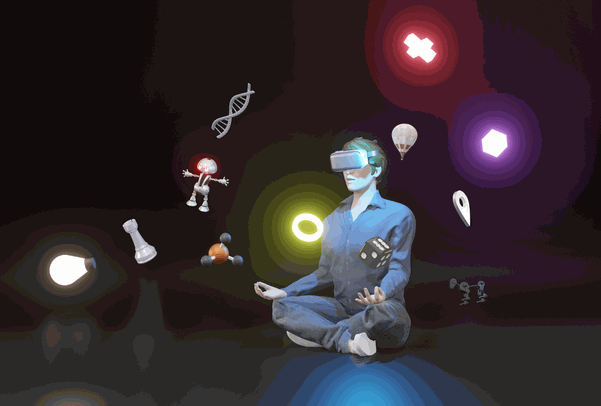The buzz around the metaverse is ubiquitous, with many businesses eager to determine how to make the most of this emerging online space.
- Reports indicate that the worth of the metaverse is forecast to reach $800 billion by 2025 and balloon to $2.5 trillion by 2030.
Numerous corporations, including Facebook, are staking their claim in the metaverse, but it is important to note that no single entity owns it. The metaverse operates on the principle of interoperability, allowing for seamless movement and interaction among multiple entities.

- B2C companies have already delved into the metaverse (Microsoft Hololens, PlayStation VR helmets, Facebook's Oculus, Epic Games, Alibaba's Ali Metaverse, etc.), it is evident that its impact will extend to B2B as well.
- B2B companies can look forward to a transformative shift in their business operations, both online and offline.
The Industrial metaverse is revolutionising the edges of the Internet
As time goes by, the convergence of various technologies will give rise to the industrial metaverse. This metaverse will consist of two main components. Firstly, there is Industry 4.0 (Industrial IoT), which has been collecting data from industrial equipment and surroundings for some time now.
On the other hand, there is the 3D world of gaming tech (augmented/virtual/mixed realities) and computer-aided design (CAD). The combination of these components will result in an immersive environment where IoT data can be accessed in new and innovative ways. Adding remote collaboration to this environment will create a section of the industrial metaverse, where multiple users can access the same data simultaneously and interact with each other virtually.
The use of real-time positioning systems can further enhance this metaverse by tracking an individual's position in real-time and rendering it in the 3D world along with avatars and other relevant information.
Why are industries starting to embrace rich and immersive environments?
Striking 3D spaces that can be accessed via any electronic device — including smartphones, tablet computers, or a wearable headset — are poised to penetrate the industrial sector and bring about more collaborative and user-friendly interactions. This includes endeavors like:
- Remote sales and marketing
- Training sessions held at a distance
- Off-site maintenance support, to name a few

This is just the tip of the iceberg, and experimentation is key
The excitement surrounding the metaverse will keep spreading as businesses experiment with novel concepts before discarding them in favor of even fresher (and perhaps superior) ones. I do think that this is only the start. As the metaverse develops, many of us will need to change course since nobody will get everything perfect the first time.
Testing and understanding how to implement our greatest ideas and embrace "in real life" outside the "real world" will rely heavily on industrial experimentation.
The Industrial metaverse is coming...are you ready to take the opportunity?